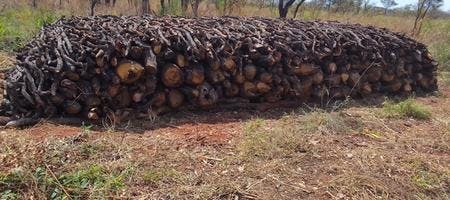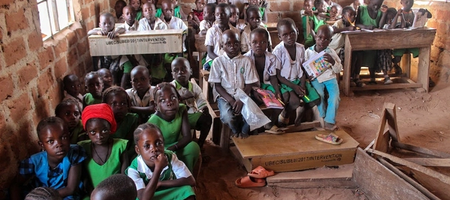We are standing at the edge of an information crisis. Artificial intelligence is reshaping our understanding of how truth appears, resonates, and disseminates, and often, it spreads wrong. Across the world, deepfakes and machine-generated misinformation are accelerating faster than human verification can catch up. The World Economic Forum warns that AI-fuelled misinformation is now the most immediate global threat to democracy. In Africa, CIPESA’s 2025 State of Internet Freedom report shows how these same tools are widening civic vulnerabilities and deepening distrust online.
Here in Uganda, the danger is real and immediate. With 78% of our population under 30, information is consumed, shared, and believed at the speed of a tweet. As the country approaches the 2026 general elections, misinformation is no longer an abstract concern — it’s a national security issue. That’s why, from October 22 to 24, 2025, we at the African Institute for Investigative Journalism (AIIJ), in partnership with the Austrian Development Agency (ADA), brought together twelve journalists six men and six women from across print, broadcast, online, and campus press—for an intensive three-day training on Fact-Checking Misinformation and Disinformation Ahead of Uganda’s Elections.
Building a Firewall for Truth
From the first session, the urgency was clear. “We are at war — not with guns, but with falsehoods,” said Mr Solomon Serwanjja, AIIJ’s Executive Director. Having personally fallen victim to an AI-generated deepfake, he reminded participants that the trade of journalism rests on only two pillars: truth and integrity. “In this era of synthetic reality,” he said, “anyone can deny the truth by calling it a deepfake.”
Leading the ethical charge was Dr Prever Mukasa, a communications scholar who unpacked the roots of misinformation. “The price of failing to verify to detail,” she told participants, “is the spread of falsehood.” Her session on empathy and the Theory of Mind reframed accuracy as a moral duty to understand how information lands in the hearts of audiences, not just on their screens.
Mr Raymond Mujuni, AIIJ’s Deputy Executive Director, then took the group through the mechanics of verifying elections—from ballot serial numbers to biometric time stamps. “If a polling station reports 100% turnout in five hours,” he said, “that’s not efficiency—that’s mathematics crying for a story.” His session reminded everyone that facts must be “stubborn”, especially when narratives grow loud.
The Digital Frontline The digital safety module, led by Mr Danze Edwin, made it personal. Journalists, he warned, are prime targets of hacking, phishing, and impersonation — and 70% of Uganda’s online fraud victims are women. His rule for survival was non-negotiable: “Two-Factor Authentication isn’t optional — it’s your lifejacket.” In the ethics session, Mr Williams Kato pulled no punches. “A politician is not your friend,” he told participants. “Once you sell your credibility, you can’t buy it back.” He cautioned journalists to resist the subtle drift of transactional reporting that undermines public trust, especially in election season. Fact-checking specialist Mr Daniel Lutaaya closed the training with a challenge: truth costs energy. He introduced Brandolini’s Law — that refuting falsehood takes ten times more effort than creating it — and tasked participants with doing that work regardless. Through reverse-image searches, metadata tracing, and live verification drills, the group tested their skills against real-world disinformation cases.
What’s at Stake
At the closing ceremony, Hasif Ssekiwunga from BBS TV, speaking on behalf of the participants, captured the next frontier: “We’ve been trained to identify lies, but our editors need this too. They’re stuck in old newsrooms while AI races ahead.” His words echoed a growing concern — that without extending such training to newsroom leadership, the fight against misinformation may stall at the reporter level.
Dr Katja Kerschbaumer, Head of the Austrian Development Cooperation in Uganda, affirmed that the struggle for truth is a democratic one. “Fact-checking is a democratic act,” she said. “It tells the public that truth still matters, evidence still matters, and journalism still matters.”
Beyond the Training
This workshop adds to AIIJ’s wider continental mission—having trained over 1,000 journalists across Africa to fortify the media’s role as a guardian of democracy. For Uganda, it could not be timelier. If these trainings did not exist, we would face an unchecked infodemic of synthetic information capable of swaying elections, dividing communities, and eroding trust in institutions. As the certificates were handed out and conversations lingered long after the sessions ended, one thing was clear: journalism is not dying; it’s evolving under fire. Mr Serwanjja’s final words still hang heavy:
“A journalist is next to God. Because when the truth disappears, society burns.”
At AIIJ, we believe the antidote to a manufactured reality is a disciplined one founded on verification, integrity, and empathy. These twelve journalists are now returning to their newsrooms not only as reporters but as truthkeepers—a line of defence against the flash-paced mis/disinformation.





